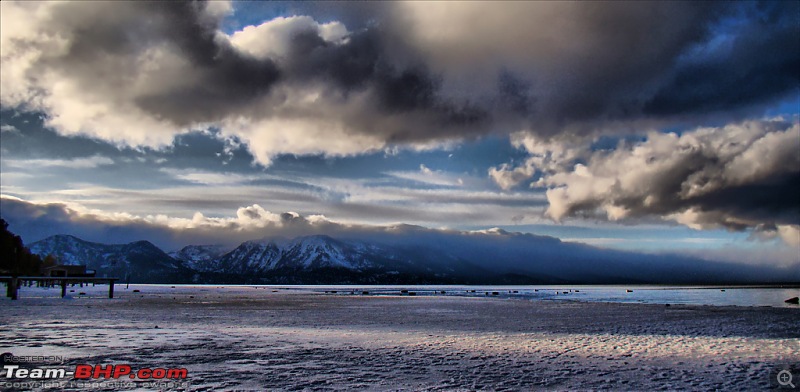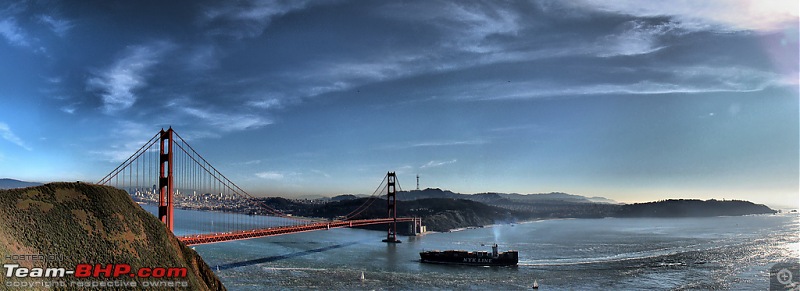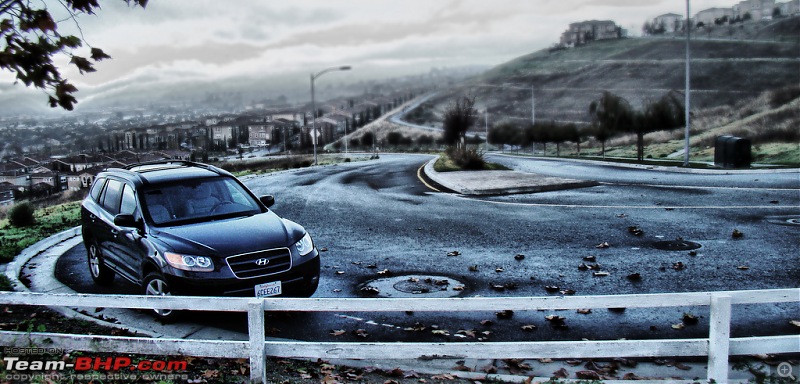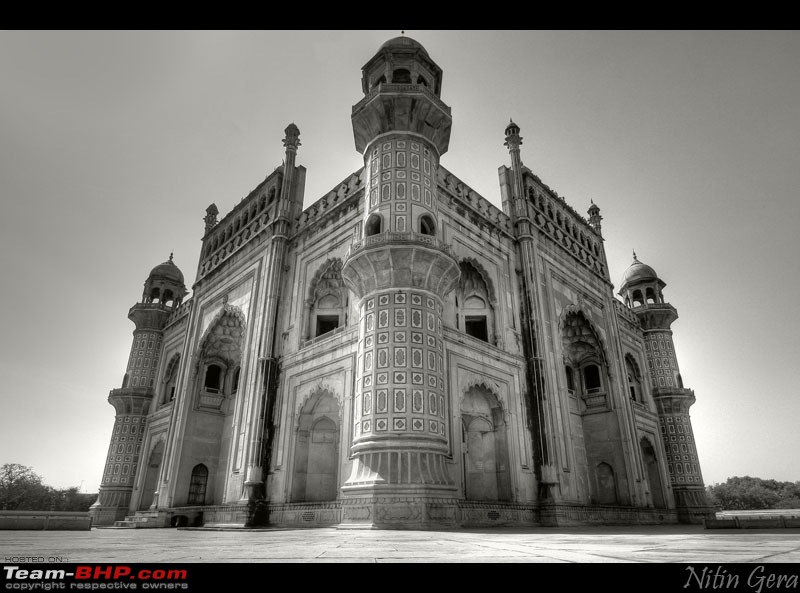| |||||||
| Search Forums |
| Advanced Search |
| Go to Page... |
 |
| Search this Thread |  3,269,142 views |
| | #661 | |
| Team-BHP Support  | NomadVagabond & StarScream, since 2008 I have upgraded two things in my camera kit. Since you guys are experts, let me know how you guys could have avoided the upgrade and yet overcome the problem. 1) I upgraded the dSLR body because my eariler dSLR body was not auto focusing at low light, had high noise at higher ISOs and no IS ability. In other words, low light photography was always a challenge with it and I love low-light photography. Check this low-light action photography with old equipment: https://www.team-bhp.com/forum/trave...lo-racing.html (Kambala: The ancient sport of buffalo racing) 2) I upgraded my walkaround lens from 14-54mm F/2.8-3.5 to 12-60mm F/2.8-4, which changed my effective max wide angle from 28mm to 24mm. I did this because I wanted to cover more without having to backing into walls or falling off cliffs. And it has really added lot more flexibility to my composition, especially in confined spaces. For example, this 24mm shot would have been impossible in even 28mm. The composition of the car and the overlooking hill with thorny bushes at my back. Now tell me how you guys could have easily compensated for lowlight and wideangle challenges without upgrading. Quote:
They do that because they have found their comfort zone in film, it is not easy for older professionals to switch to digital one fine day and relearn their trade. In addition, professionals switch equipment only on need basis and not because newer stuff is cooler. Last edited by Samurai : 6th April 2009 at 09:04. | |
| |  ()
Thanks ()
Thanks
 |
| |
| | #662 | |||
| BHPian | Quote:
I was thinking of the same, I wanted to use some of your literature for my blog!!!! Of course it will be attributed to you! Quote:
Quote:
Yes, I agree with you regarding low light shooting. But before you learn to shoot in low light, where the lighting is so complicated, it is absolutely critical to know light, by clicking at places with a decent amount of light. And you can take some amazingly cool clicks there. But here, you are restricted as far as low light circumstances are concerned. I would compensate this issue by not using this gear for this kind of photography  rather will try to master and excel in other areas using the very same equipment and then later when I feel I have pushed my camera to its limits, ( which you would have, i am sure before you made an upgrade) I would go for an upgrade. rather will try to master and excel in other areas using the very same equipment and then later when I feel I have pushed my camera to its limits, ( which you would have, i am sure before you made an upgrade) I would go for an upgrade.Now, regarding the wide angle lens. You can compensate by stitching together multiple shots seamlessly. These images are taken using my point and shoot. Yes it takes a little more time, but perfectly doable. I have produced many a wide image this way.    And I appreciate that you deliberately put the might there..haha! Regards, TG. | |||
| |  ()
Thanks ()
Thanks
 |
| | #663 |
| Team-BHP Support  |
That's true only for shooting non-moving objects. The example I posted, it has people moving around. These days I heavily use the camera for offroad photography which involves lot of action and tight shooting spots, stitching is not an option. |
| |  ()
Thanks ()
Thanks
 |
| | #664 |
| BHPian | @Samurai Again, its application specific. You without doubt need a wider lens for that application. We were talking of general photography, i assumed. PS: That ship was moving  |
| |  ()
Thanks ()
Thanks
 |
| | #665 | ||||
| BHPian | Quote:
 . Apart from that, My cheap 50mm 1.8 does stuffs which my more expensive 100-400mm fails to do in low light situations. Lenses are made according to certain needs and necessities. You can't place them on the same platform and think they'll perform just because of their quality or specs. . Apart from that, My cheap 50mm 1.8 does stuffs which my more expensive 100-400mm fails to do in low light situations. Lenses are made according to certain needs and necessities. You can't place them on the same platform and think they'll perform just because of their quality or specs.Quote:
Quote:
One very famous Indian wildlife photographer who happens to be in the panel of Nat Geo once said that digital has made everyone a photographer these days. This is what digital has done. Not that film was not good enough. There were fantastic photographs shot before the digital era too. Quote:
Hahaha that was a lovely one. Regards, Anirban. | ||||
| |  ()
Thanks ()
Thanks
 |
| | #666 | |||
| Senior - BHPian Join Date: Nov 2007 Location: Noida/Delhi
Posts: 1,263
Thanked: 665 Times
| Quote:
Quote:
One other thing that contributes to slow learning is when people start off with zooms. The slow zooms that come with entry-level cameras, prevent a learner from developing a sense of composition and understanding depth of field. One should really only start using zooms after six months of practice with a prime. I wish I had done that and not fallen for the `kit' lens when I started out. Quote:
And yes if the choice is between falling off a cliff and a lens, then please get the lens. Last edited by StarScream : 6th April 2009 at 14:16. | |||
| |  ()
Thanks ()
Thanks
 |
| | #667 | |||
| Senior - BHPian Join Date: Feb 2005 Location: Melbourne
Posts: 4,377
Thanked: 5,105 Times
| Quote:
Limitations are sometimes just that and there is no way to overcome those and thats when you 'need' better equipment. Quote:
For example an 18-200 mm would be useless for bird photography and try as hard as you may, you wont get the same results as 70-200 L, let alone a higher spec lens. Quote:
Last edited by extreme_torque : 6th April 2009 at 14:47. | |||
| |  ()
Thanks ()
Thanks
 |
| | #668 | |
| Senior - BHPian Join Date: Feb 2005 Location: Melbourne
Posts: 4,377
Thanked: 5,105 Times
| Quote:
Offcourse nothing is impossbile in photoshop but I am not the one to spend hours and hours sitting in front and editing to give my images 'that' look. I am taking the liberty of posting a pic from my friend's camera to make clear what I mean by that perspective.  Last edited by extreme_torque : 6th April 2009 at 14:55. | |
| |  ()
Thanks ()
Thanks
 |
| | #669 |
| BHPian Join Date: Dec 2007 Location: Bangalore
Posts: 317
Thanked: 50 Times
|
I think it also has to do with the format. For large format and, to a lesser extent, medium format, digital alternatives have not evolved to the level where they can replace film for detail. |
| |  ()
Thanks ()
Thanks
 |
| | #670 | |
| BHPian | Quote:
See you are talking of certain very niche perpective given by a particular lens, I understand you perfectly. Photography has much more to it than a certain "look" achieved by using a particular lens. Good gear definitely matters for a pro, but to reach that level...the minimalistic approach works best. Thats all what my point is. Going for a DSLR when u are interested in photography, without using a basic digital cam may work , but going the other route helps you learn much more. A person who has walked for miles will apreciate and also make better use of a car when he earns one. Its the same principle. Peace out. And yeah, when you are extremely passionate about anything, speding hours is like speding a few minutes. I go through it every single day. But again, time is valuable so is money and its always a trade off between the two when it comes to photography. And for the record, that shot effect, can be quite easily achieved in photoshop...hehe wanna bet?  Great shot by the way,, loved it! Great shot by the way,, loved it!Last edited by Torqueguru : 6th April 2009 at 15:06. | |
| |  ()
Thanks ()
Thanks
 |
| | #671 | |
| Senior - BHPian Join Date: Feb 2005 Location: Melbourne
Posts: 4,377
Thanked: 5,105 Times
| Quote:
Again the assumption you are taking is that we havent gone through the minimalistic approach before the upgrade. We have else I woulnt be able to justify myself spending 60k in India on a camera given that I dont earnt too much. :-) | |
| |  ()
Thanks ()
Thanks
 |
| |
| | #672 |
| BHPian | You want it , go for it. Simple. But anyways you matter more than the camera! At the pro DSLR level, in each bracket, products have pros and cons, biggest differences are in the photographers who handle them. And thats where this whole awesome discussion began!!!! I didnt assume that we all didnt make a gradual route to DSLRs. I just said why, the camera doesnt matter by taking a few eg from point and shoot. There is always a work around to get sexy shots, and there too the man who clicks matters. But ofcourse you cant catch a whale with a fishing rod. Phew..nerve racking!!! Well, we can go on and on and on, about this. I am loving it!!!  |
| |  ()
Thanks ()
Thanks
 |
| | #673 | |
| Senior - BHPian Join Date: Nov 2007 Location: Noida/Delhi
Posts: 1,263
Thanked: 665 Times
| Quote:
Incidentally, your assumptions about my assumptions couldn't be farther from the truth. Some of the best pictures I've taken were with a humble film Minolta p&s. Those pictures are what sparked my interest in photography. Things went downhill for me when I bought an SLR with a 35-80 kit zoom because I would spend more time fiddling with settings and lamenting about my inadequate lens. Later, I realized why my p&s pictures were good despite its limitations - it got out of the way and let me focus on composition. Last edited by StarScream : 6th April 2009 at 15:44. | |
| |  ()
Thanks ()
Thanks
 |
| | #674 |
| Team-BHP Support  | There is another thing, shooting comfort. My first camera was a used Minolta SLR handed down by my uncle in 1989. It had a 50mm prime lens, manual focus, no TTL metering, no flash, and I don't think it even had a battery. So forget all automatic functions. But it had one life saver, DOF preview button, which when pressed would give the idea about exposure and DOF. Initially it was so difficult to take photographs with it, eventually my brother and I figured how to shoot with it. Each shot had to be composed very carefully, first pick the F-stop, then the shutter speed, then slowly turn the dial to focus the object, press the DOF-preview button to see whether the exposure is acceptable, if not adjust F-stop and speed for better exposure, preview again and then click. Then I didn't have understanding of the zone-system, but if the scene was illuminated any closer to reality, it was acceptable. It took at least 30-60 seconds to shoot one frame. When I bought my first new camera in 1993, the fixed lens SLR Olympus IS-3 DLX, it was like upgrading from Maruti 800 to Merc. It had AF, 35-180mm zoom, TTL metering, spot metering, the A, P, S, M and even macro shooting modes. This was my primary camera until 2001. Olympus IS-3 DLX Reviews Obviously the quality of my shots dramatically improved since I could focus on composition rather than fiddling with all the controls to get the right image. There was not much difference in my photography knowledge between these cameras, but the modern equipment let me focus on composition. A old photo from the Olympus IS-3.  Last edited by Samurai : 6th April 2009 at 15:47. |
| |  ()
Thanks ()
Thanks
 |
| | #675 | |
| BHPian | Quote:
Wow! I envy you for being born much earlier than me! That sounds like so much fun! Wealth of experience cannot be beaten! Regards, TG. | |
| |  ()
Thanks ()
Thanks
 |
 |



 . I never said that a pro doesn't need top-of-the-line equipment. What I said was that he can make magic with equipment that may surprise us amateurs. Because apart from composition skills he understands the limitations of the equipment and how to use it best. I would still place my bet on the pro with the p&s compared with the novice with the Dslr.
. I never said that a pro doesn't need top-of-the-line equipment. What I said was that he can make magic with equipment that may surprise us amateurs. Because apart from composition skills he understands the limitations of the equipment and how to use it best. I would still place my bet on the pro with the p&s compared with the novice with the Dslr.